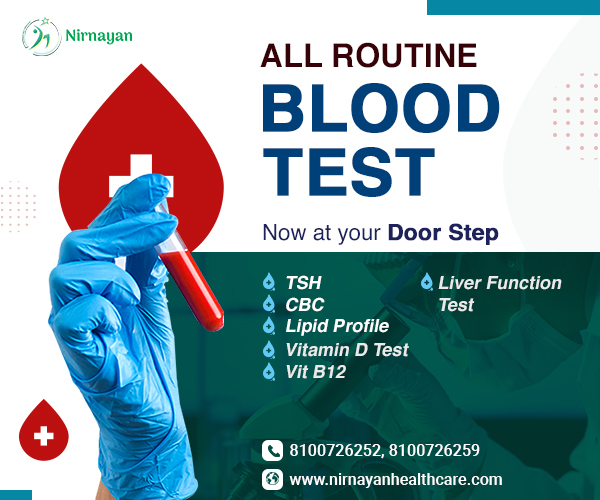Among all, sleep is a condition when your mind and brain start to repair your body functions for the whole day. But poor sleep is a common problem when your body does not perform its repair tasks, and that impacts a lot in our daily lives. Globally, this condition can harm your health silently, and we do not understand its importance. Lack of sleep happens when you are not getting enough sleep or are unable to complete the sleeping cycle, which causes several health issues, from mild to severe, because of poor sleep health or no sleep issues. In this blog, we will discuss its causes and how it affects your overall well-being.
Causes of a lack of sleep:
Various factors may vary person to person, such as no sleep or insomnia:
- Certain medical conditions, like cardiovascular disease, asthma, body pain, joint pain, or chronic lung disease.
- Intake of coffee or tea at bedtime creates sleep disorders.
- Your mental health conditions, such as anxiety, stress, overthinking, and depression, do not allow you to sleep calmly, and cause bad sleep health
- Side effects of daily routine changes, like night duty or night shifts, may change your sleeping time and also contribute to sleeplessness.
- Sometimes medication side effects may also cause sleeping disorders.
- Poor bedding, mattresses, or room temperature can cause sleep deprivation.
Effects of a lack of sleep on health:
Good sleep always indicates a healthy body and proper body functioning. If you don’t have proper quality of deep sleep, it may harm your overall health and brain as well. Conditions due to sleep deprivation may include:
- Lack of concentration due to no sleep
- Tiredness if you are having a sleep disorder
- Memory loss when you are suffering from a sleep condition
- Difficulties in making decisions when your brain cannot function properly due to poor sleep
- Problems with remembering incidents
- Unnecessary weight gain due to poor sleep
- Frequent mood swings without any cause for a sleep problem
- Feeling irritated for no reason
- Heart disease due to continuous poor sleep
- Type 2 diabetes due to persistent sleeplessness.
What happens to your body when you are having a deep sleep?
Sleep is a natural bodily state when your brain and body rest. During this time, your body enters a relaxed state – your brain slows down, your muscles relax, and your blood circulation functions normally. It is essential for repairing your body muscles and internal body energy, balancing your hormones, and ensuring the proper functioning of your immune system. Getting sleep is not just a matter of comfort; it’s the most complex body function that affects all your well-being.
Deep sleep is a part of your sleep cycle, also known as slow-wave sleep (SWS). This stage is the time when your body and mind are fully relaxed, along with a deep restorative process. If you have Sleep problems (insomnia) that do not allow this function to complete your body repair, and poor sleep also impacts your mental health, which also causes various complications physically.
Importance of sleep in our whole body function:
Sleep is a condition when your body takes rest, and your brain also comes into a slow-down mode. When you are asleep, your body possesses some repairing functions, and your brain gets a time slap for maintenance. But sleep deprivation (insomnia) can affect this body function and may bring some effective reaction to your overall health.
Some of the essential things that can happen when you are asleep.
- Regaining body energy: Throughout the day, your body uses energy resources for fulfilling daily work or activities, but when you are asleep, your body needs low energy that can store energy for the next day’s activities.
- Recovery and repair: Being less active or asleep means your body works less. During sleep, your body automatically repairs tissues that have already been used while you are awake.
- Brain and memory maintenance: During your sleep, your brain functions slowly but is not fully inactive, repairs connective tissues that can boost your everyday response power, memories, and relaxes. That improves your concentration, memory, and sharpens your thinking.
- Keep balancing your emotions: If you get proper sleep every day, it keeps you stress-free, makes your mood refreshed and energetic, and you can control your emotions without stress.
Symptoms of chronic lack of sleep:
Sleep deprivation (insomnia) may have different types of symptoms that impact your health with serious consequences.
- Drowsiness in the daytime
- Tiredness
- Reduced concentration
- Headache
- Problem in reactions
- Unexpected fatigue due to a sleep problem
How much quality deep sleep is required for healthy well-being?
The ideal amount of deep sleep differs from person to person, influenced by factors such as age, lifestyle, and individual physiology. For most adults, deep sleep should comprise roughly 10–15% of total sleep duration. While some may naturally experience more or less, this variation is generally nothing to worry about. If you are unable to complete your sleeping cycle, several symptoms may occur due to no sleep.
Young children and adolescents typically spend a larger portion of their sleep in deep stages, supporting their growth and development. As we grow older, it’s normal for deep sleep levels to gradually decline. Rather than fixating solely on deep sleep, the focus should be on achieving overall restorative sleep, as this naturally supports healthy deep sleep cycles.
Recognise the stages of deep sleep:
If you think that while in sleep, your body and brain are inactive, you are wrong. At this time, your brain slowly starts repairing movements throughout the body, so that deep sleep is highly essential for your healthy and fit body.
For deep sleep, quality is essential – deep sleep is not all of your sleep; it is a portion of your sleep. Sometimes you wake up and are unwilling to get out of bed, which means you have sleep deprivation (insomnia), or you did not have a good quality of sleep. Here are some stages of sleep:
Stage 1: This is the lightest phase, lasting just 5–10 minutes as you drift between wakefulness and sleep. Your brain produces slow theta waves, and you might feel a sudden jerk or falling sensation—classic signs of this easily disrupted stage.
Stage 2: In this phase, deep sleep starts to get in, and your heart beats slow down, your body temperature is reduced, and your eye movements become still. Although brain waves slow down, brief bursts of activity called sleep spindles appear, helping with memory and learning.
Stage 3 & 4: Deep sleep zone – during this time, your body heals, grows, and processes memories as brain waves slow to deep delta rhythms. It’s hard to wake up, and if you do, you’ll likely feel groggy and disoriented—classic deep nap confusion.
Rapid eye movement (REM) sleep:
REM sleep begins about 90 minutes after you fall asleep and repeats in cycles. Your brain becomes active, eyes dart under closed lids, breathing quickens, and dreaming takes centre stage. Meanwhile, your body stays still to prevent acting out dreams. This full sleep cycle—from light sleep to REM—repeats through the night, with longer REM phases in the early morning. If you have any sleep problems or no sleep issues, consult with your doctor.
How much deep sleep do you require daily?
Sleep requirement depends on individuals with their ages, health conditions and other factors. In general, an adult requires seven to nine hours of sleep every night, and 20% of that time needs to be spent in deep sleep. But nowadays, we all may have a sleep problem due to various lifestyle factors.
How to manage your sleep deprivation condition:
To maintain a productive life, you need to improve your sleep. Some strategies are now going to be discussed on how you can maintain enough deep sleep naturally without any medications:
- Reduce your stress & anxiety:
Check what causes you more stress before your bedtime – try to avoid those factors, and lower your depression and anxiety, which improves your sleep health and also gives you a good night’s sleep.
- Continue with a scheduled lifestyle:
Stick to a consistent sleep schedule—even on weekends—to keep your body clock in sync and improve sleep health. Add calming habits like reading or meditation to your bedtime routine to help your body wind down naturally.
- Quitting the habit of tea or caffeine:
Caffeine can stay in your system for hours, messing with your sleep, that causes lack of sleep. It’s not just in coffee, soda, and chocolate; some painkillers have sleep problems too. If you’re having sleeplessness, try keeping caffeine to the earlier part of your day.
- Keep you moving:
Physical activity not only boosts your heart health, but it also helps in improving your no sleep condition. Avoid hard or strenuous exercises before bedtime because sometimes it leads to unusual tiredness, which later causes sleeplessness.
- Follow your diet:
Have plenty of food on your dinner plate and avoid heavy foods. Too much food intake or a full stomach can create stomach pain or gastric issues, which do not make you comfortable to complete your sleep and cause sleeplessness.
- Avoid using Mobile or other electronic devices at bedtime:
Don’t watch on your mobile or surf the internet at bedtime, as it may cause a lack of sleep(insomnia).
- Make a comfortable sleeping environment:
Set up a cosy sleep space—keep your room cool, dark, and quiet. Use white noise or earplugs to block sound, and try a sleep mask or blackout curtains if light is a problem – it leads to improved sleep quality and also reduces your unnecessary tiredness.
Conclusion:
Deep sleep is essential for your overall body function and wellness as it regulates your hormonal balance, controls your blood pressure, boosts your heart health, makes you mentally strong and refreshed, improves your concentration, and much more. There is a huge impact of poor sleep on mental health due to a lack of concentration, inability to focus, and poor thinking. In one word, if you want a healthy life, you must complete your deep sleep daily. Your brain and overall body functioning depend on your healthy nervous system, which may come with proper sleep. So sleep well, and live well.




